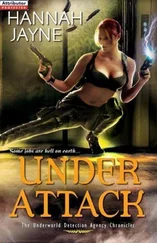Every day a straggling queue could be seen outside most underground stations from mid-morning, with people clutching their cushions, blankets and other night-time necessities, waiting for the gates to open for them at 4 p.m. The government, concerned that this could have a serious impact on war production as well as the regular life of the capital, was anxious that the concession, as it saw it, to use the tube as shelters should be regarded as that, and not as a right. The underground should not be depicted as a destination of choice, and the Home Office issued memos to newspaper editors requesting them to be circumspect in their coverage of people sheltering there. Articles such as one in the Sunday Dispatch on 22 September, which reported that ‘by 6pm there seemed no vacant space from St Paul’s to Notting Hill, from Hampstead to Leicester Square … types varied much from the trousered, lipsticked Kensington girls to the cockneys of Camden Town; but all were alike in their uncomplaining, patient cheerfulness’, could only fuel the overwhelming desire for platform space that the government feared. Representing the underground as a sanctuary only for those unable to deal with the raids in any other way might limit the numbers. The Ministries of Transport and Home Security issued a joint appeal to ‘the good sense of the public and particularly to able-bodied men to refrain from using tube stations as air raid shelters, except in cases of urgent necessity’ – though presumably an air raid was an urgent necessity. The notion of it being ‘unmanly’ to use the tube was reiterated by notices on the platforms urging: ‘Trains must run and get people to their work and homes. Space at the Tube stations is limited. Women and children and the infirm need it most. Leave it to them!’ The Daily Express reported that on the night of 28–29 September 1940 twenty unattached young men were directed by police and station staff at South Kensington to find somewhere else to shelter. But men – some of whom might have been troops on leave – needed safety and sleep too. ‘I am 29 and though I am not in the army yet I am just as much in the frontline as any soldier in this country,’ complained a twenty-nine-year-old working man. ‘It really is unreasonable to abuse chaps who are waiting to be called up.’
Grudging recognition may have been forthcoming, but since there was so little official enthusiasm for tube sheltering, improvements lagged. On 24 September it was announced that a million bunks would be fitted in London’s shelters, so that ‘whatever type of shelter is used, whether private or public, the aim is now that all the people of London shall have a definite space allocated in which they can sleep at night … when the [large basements, street and trench] shelters are fitted with bunks they will look something like American sleeping cars … Families would be allocated a specific space with [two- or three-tiered] bunks and sanitation … and encouraged to think of it as their own property and make it as comfortable as possible.’ However, ‘no bunks are to be fitted into the underground stations, although the use of the stations for night shelters has been recognised and they are now being used under police supervision’. There were reports that ‘police supervision’ included quizzing would-be tube shelterers and turning them away if they were considered to have other options – even if they were mothers with babies or small children in tow.
But on 4 October 1940, after a three-hour tour of underground stations, Admiral Evans announced that he intended to introduce a system of ticketing so that regular users could be allocated a space, which would obviate the need for hours of queuing – and also wipe out the thriving black market operated by ‘droppers’. These racketeers would ‘persuade’ a sympathetic tube worker to let them in ahead of the patient queue waiting until 4 p.m., on account of their supposed poor health, and would then ‘bag’ the best pitches by placing bits of bedding on them, and charge unfortunate shelterers the exorbitant sum of 2s.6d for them – at a time when the average wage was around £3 a week. Evans also promised that bunks would be provided, and that ‘the problem of sanitation has been solved in most cases’ – though this was disputable, since ‘sanitation’ usually meant a few overflowing chemical toilets, or people using the rail lines as a public convenience.
The first of the three-tier metal bunks were installed at Lambeth North station on 25 November 1940; by early March 1941, 7,600 had been erected in seventy-six stations. Most of them were allocated to regular shelterers, though 10 per cent were to be left free for those caught out in a raid. There were still, however, people who had to sit up all night, as they did in some public shelters. Latecomers had to cram in wherever they could – in corridors or the booking hall, or on escalators (switched off). The two platforms at Holland Park station would be almost full by 5 p.m.: by 7 p.m. the only space left was at the bottom of the emergency stairs. That same spring local councils were authorised to provide water-borne sanitation in place of the easily-knocked-over chemical toilets, and that reduced the stench a bit. At Old Street station, Shoreditch Council provided a laundry and disinfecting service for bedding free of charge to the ‘tubeites’. Washing facilities other than the occasional small handbasin were not provided: people either had to go home to spruce up before a day’s work, or use a nearby public bath (though many of those had been taken over by the Civil Defence services, often to be used as mortuaries). ‘We didn’t have bathrooms and facilities like that in our houses. We were used to going to the public baths, and when they were taken over, you just had to go home and if the water was still on, you’d just have a quick wash and off to work. But if the water was off, then you had to get it from a standpipe in a jug … It was very hard to wash your hair or anything like that. Personal hygiene rather went out of the window, but you just got used to it.’ In West Ham, Lever Bros equipped a van named ‘Lifebuoy Boys’, after one of its soaps, that toured the shelters offering people a chance to have a shower as they came out.
Local authorities, private caterers and voluntary organisations such as the WVS and the Salvation Army organised platform canteens in larger stations where shelterers could buy tea and buns, and sometimes hot soup, pies or sausage rolls, and cigarette-vending machines were installed in some stations. The LPTB equipped six tube trains to carry buns, cakes, biscuits, chocolate and urns of tea and cocoa around the network, served by staff wearing red armbands bearing the letters ‘TR’ (Tube Refreshments). Robert Boothby, Parliamentary Secretary to the Ministry of Food, who had been ‘astonished’ by seeing ‘at least 700 people’ disgorging from one tube station at the end of the night to begin what could be a long trek home, commandeered coffee stalls and vans and had them positioned to sell tea, cocoa and soup to shelterers as they emerged blinking into the light of early morning.
‘It was better after that,’ concedes Irene Moseley. ‘The bunks weren’t comfortable by any means, but it was better than sleeping on the platform. Things became a bit more organised … a lady used to come round with biscuits and buns, and down one end of the platform were portable toilets. It wasn’t perfect by any means, but it was an improvement. And the best thing was that you were entitled to be there, and that made you feel a lot better … it gave you a sense of belonging really.’
A week after the start of the blitz, the King’s physician, Lord Horder, had been appointed to head a committee to look into shelter conditions both above and below ground. Father John Groser, the ‘turbulent priest’ of Stepney, was one of the members, as were the elegant Rose Henriques, wife of Basil Henriques, Warden of a Jewish settlement in the East End, and Alderman Charlie Key, MP for Bromley and Bow, who was soon to play a key role in the defence of London. The committee reported informally within four days and more formally at the end of September, though MPs complained that there was no full written record of its findings that they could consult. This, the Parliamentary Secretary to the Minister of Health, Florence Horsbrugh, intimated, was because it was highly undesirable that the enemy might find out what dreadful conditions Londoners were suffering as a result of its attacks.
Читать дальше












